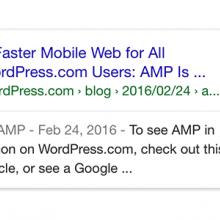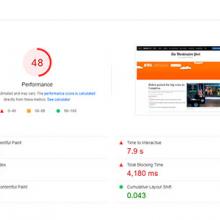Speed
index, follow




index, follow
Accelerated Mobile Pages or AMP is Google’s open-source framework project that ensures first-mobile design with optimal speed. It is a bunch of principles and HTML standards which helps Google to identify webpage as AMP website and also helps to speed it up. Google has a special AMP Google Cache, where it automatically saves AMP webpages for faster loading. AMP is not strictly made only for websites and web applications, but also banners.
AMP is from 2015 Google’s very efficient framework for accelerating websites. Most of the popular webpages using it are:
Principles of Accelerated Mobile Pages really speed up websites and can be applied without AMP. For example, 50 Kb of JS and CSS, and inline CSS are applicable for all websites and reduce time of loading. AMP also offers free and good CDN. Before 2021 AMP pages had small AMP badge in google search result page, but it was deprecated.

Drupal also participates in AMP. There are modules which converts Drupal pages into AMP, also a theme.
Using only AMP will not impact SEO ranking if other SEO principles are not carried out. AMP is not a SEO ranking factor, but website speed is. Also, websites can be very fast without AMP. Some of AMP webpages are not so fast as AMP promising, or it can be fast on desktop but slow on mobile devices. But in every case latency is low even on low cots hosting packages, because AMP is using Google AMP cache.
This is a PageSpeed test of The Washington Post website, which is on AMP.

AMP framework is pretty limited, so design must be restricted by its rules and there is no much freedom for frontend developers. Popup windows and social buttons are not allowed or very limited. Also, conventional ads and banners which are not made with AMP are not supported by AMP framework. So, website administrators must limit their clients to make AMP banners and that all impact sales and attendance.
Attendance analysis via Google Analytics needs some extra configuration, what can be a big struggle and potentially result in incorrect data.
So we are now coming to the biggest issue. When Google stores your pages in cache, then Google has control on your webpage’s content. For example, updating and maintaining content can be struggled. Nobody wants to be controlled, and those features are criticized by many experts.
So eDot.pro don’t recommend AMP, and we don’t make our websites on AMP, but we follow AMP principles. Websites we made are mobile-first and very quick, even faster, without AMP.